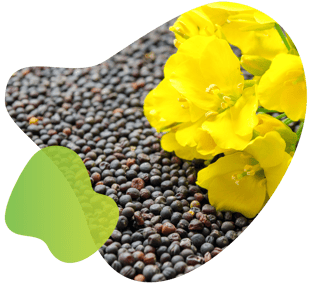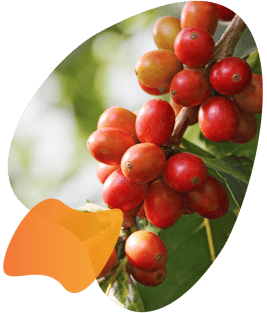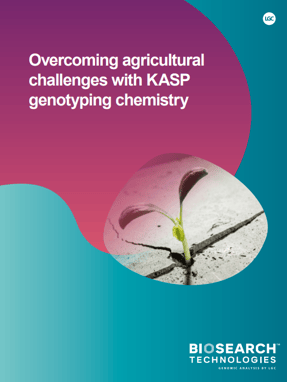Originally published : Wed, September 14, 2022 @ 9:30 AM
Updated : Wed, March 22, 2023 @ 1:22 PM
Modern agriculture faces unprecedented challenges: increasing global temperatures, water scarcity, less arable land to meet production needs, a growing population, supply chain disruptions, production instabilities and a limited labour force. According to estimates compiled by the Food and Agriculture Organization (FAO), by 2050, we will need to produce 60% more food to feed a world population of 9.3 billion.1
To achieve this goal, farmers and agricultural scientists must be armed with new products and technologies that increase yields, improve efficiencies, optimise profitability potential and support sustainable production to preserve resources long-term. Genotyping technologies such as KASP™, based on competitive allele-specific PCR, play a large role in providing breeders with actionable data for increasing food production in challenging environments. Here are some practical applications of KASP in plant breeding.
KASP PCR markers help facilitate disease-resistant crop development
The challenge
 Fungal pathogens are estimated to cause yield losses of around 15% in agricultural crops worldwide.2 Minimising disease effects is mainly managed through cultural practices and chemical applications, which can be costly, time-consuming and impractical in some regions. Breeding crops for disease resistance can help reduce crop losses and may be a more sustainable, universally adapted approach. Phenotyping has been used to identify resistance genes in some crops, including canola, but it is laborious and cannot always resolve the complete genotype. Therefore, many breeding programmes aim to identify molecular markers for disease resistance to promote faster, more accurate genetic improvement in agricultural crops.
Fungal pathogens are estimated to cause yield losses of around 15% in agricultural crops worldwide.2 Minimising disease effects is mainly managed through cultural practices and chemical applications, which can be costly, time-consuming and impractical in some regions. Breeding crops for disease resistance can help reduce crop losses and may be a more sustainable, universally adapted approach. Phenotyping has been used to identify resistance genes in some crops, including canola, but it is laborious and cannot always resolve the complete genotype. Therefore, many breeding programmes aim to identify molecular markers for disease resistance to promote faster, more accurate genetic improvement in agricultural crops.
The solution
Van de Wouw et al.3 developed and validated KASP markers that can discriminate between the resistant and susceptible alleles of various blackleg disease resistance genes in canola.
The technological advances
For each disease-resistant gene of interest, allele-specific primers with fluorescent tags (FAM or HEX) and a common primer were designed to allow detection of the two alternative single nucleotide polymorphisms (SNPs) being targeted. The identified markers will enable researchers and the agricultural industry to characterise resistance genes without phenotyping, accelerating breeding outcomes and delivering improved crop varieties to farmers faster. Commercial breeding companies and private research groups in Australia are already using these markers to advance canola breeding progress.
How KASP supported research objectives
The KASP genotyping system allows the detection of single nucleotide polymorphisms and insertions/deletions at a specific region of interest. The KASP markers developed in this study are allele-specific markers that can discriminate homozygous resistant and susceptible lines from heterozygotes in a high-throughput, low-cost method.
KASP facilitates fine QTL mapping to identify candidate genes of interest
The challenge
Uncovering the genetic control of melon fruit traits may contribute to increasing melon yield and quality, increasing the productivity and profitability of the melon industry. Many quantitative trait loci (QTLs) for fruit- and seed-related traits have been identified; however, fine mapping or cloning of QTLs for these traits is rarely reported in melon.
The solution and technological advances
Zhang et al.4 identified QTLs for fruit-related traits using a resequencing-based high-density genetic map. Researchers used SNP-derived KASP markers to fine map QTLs for seed length and width, and candidate genes were predicted. This study provides a rapid, joint QTL mapping analysis strategy and a set of useful QTL resources for further fine mapping and candidate gene cloning for seed length and width QTLs in melon.
How KASP supported research objectives
SNP-derived KASP markers were used to fine map QTLs for both seed length and width, and candidate genes were predicted.
KASP helps identify the sex of dioecious plants
The challenge
Dioecious plants have male and female reproductive organs in separate individuals, making pollination more challenging than in monoecious species. A viable population must have both sexes for effective reproduction. The Pistacia genus is dioecious, and its trees can take four to five years to reach the economically valuable fruit-bearing stage. The food, healthcare and baking industries rely on fruit from Pistacia species as raw material, so growers must maximise productivity. Individual plant sex identification in the early juvenile period is essential to optimise tree positioning for successful pollination.
The solution and technological advances
Sahin et al.5 used KASP assay technology as a marker screening system to successfully discriminate the sex of seven Pistacia species: P. atlantica, P. integerrima, P. khinjuk, P. mutica, P. terebinthus, P. vera, and P. lentiscus. The team converted 12 SNP markers to KASP markers and determined that five showed clear allelic discrimination between male and female plants. Two specific SNPs were identified as the best marker assays because they showed allelic frequency differences for all individuals and both homozygous and heterozygous characters. These markers could be the most comprehensive ones for the whole genus because they showed discriminative power for several species. This ground-breaking study is the first to use the KASP assay for sex discrimination in Pistacia species. The results support the use of KASP for sex discrimination in other dioecious plant species of economic importance.
How KASP supported research objectives
Using KASP, researchers could clearly identify the sex of several Pistachia species well before they reached reproductive stages. This information enables plant breeders to maximise fruit productivity by assembling the most optimal pollination setups. The study’s results support using KASP for sex identification in other economically important dioecious plants including hemp, hops, papaya and asparagus.
KASP helps manage germplasm collections
The challenge
 Precise identification of plants in any germplasm collection is essential to facilitate library management and obtain favourable breeding outcomes. The Coffea canephora germplasm collection at the Cocoa Research Institute of Ghana is preserved as trees in a field gene bank because coffee seeds are recalcitrant and are unsuitable for traditional storage methods. Typically, each germplasm accession is represented by multiple trees, which are propagated by cuttings. Gene bank activities may be affected by misidentification errors because the trees in the germplasm plots were collected, exchanged or otherwise obtained with limited information about their correct identity. A highly reliable, cost-effective molecular marker system is needed to assist coffee germplasm management.
Precise identification of plants in any germplasm collection is essential to facilitate library management and obtain favourable breeding outcomes. The Coffea canephora germplasm collection at the Cocoa Research Institute of Ghana is preserved as trees in a field gene bank because coffee seeds are recalcitrant and are unsuitable for traditional storage methods. Typically, each germplasm accession is represented by multiple trees, which are propagated by cuttings. Gene bank activities may be affected by misidentification errors because the trees in the germplasm plots were collected, exchanged or otherwise obtained with limited information about their correct identity. A highly reliable, cost-effective molecular marker system is needed to assist coffee germplasm management.
The solution
Akpertey et al.6 validated 192 published SNP markers and selected a panel of 120 loci to examine parentage and labeling errors, genetic diversity and population structure in 400 C. canephora accessions assembled from different coffee-producing countries and planted in a field gene bank in Ghana. The researchers used KASP genotyping to compare the genetic backgrounds of the tested accessions to identify mislabeling errors in accession records.
Technological advances
This study validates the utility of using SNPs to detect mislabeling in a C. canephora breeding programme that includes germplasm from multiple sources. The results of this study show an unacceptable mislabeling frequency comparable to those in other tree crops that rely on a seed garden system for variety development. This study helps demonstrate that SNP markers are practical tools in fingerprinting germplasm collections from different sources to guide germplasm conservation and variety development in breeding programmes.
How KASP supported research objectives
KASP genotyping offers a cost-effective, reliable way to fingerprint C. canephora accessions to ensure genetic authenticity.
KASP supports the future of agriculture
As shown in just a few examples, KASP genotyping technology has expansive applications in modern plant breeding programmes. Our experts can help you design assays that cost-effectively and accurately deliver the data you need to make timely crop improvement decisions.
 |
Learn more about how KASP has overcome challenges with breeding wheat, palm oil and pepper (Capsicum annuum) in our collection of KASP application notes and case studies. |
Related content: Read more of our agrigenomics content on The BiosearchTech Blog
References
1 Graziano Da Silva J. Feeding the world sustainably. UN Chronicle. Published June 2012. Accessed August 2022.
2 Stotz HU, Mitrousia GK, de Wit PJ, et al. Effector-triggered defence against apoplastic fungal pathogens. Trends Plant Sci. 19:491–500. Published August 2014. Accessed August 2022. https://www.ncbi.nlm.nih.gov/pmc/articles/PMC4123193/
3 Van de Wouw A, Zhang Y, Shuadah Mohd Saad N, et al. Molecular markers for identifying resistance genes in Brassica napus. Agronomy. 12(5):985. Published April 2022. Accessed August 2022. https://doi.org/10.3390/agronomy12050985
4 Zhang H, Zhang X, Li M, et al. Molecular mapping for fruit-related traits, and joint identification of candidate genes and selective sweeps for seed size in melon. Genomics. 114(2). Published March 2022. Accessed August 2022. https://doi.org/10.1016/j.ygeno.2022.110306
5 Şahin ZN, Sahin EC, Aydin Y. et al. Molecular sexual determinants in Pistacia genus by KASP assay. Mol Biol Rep 49:5473–5482. Published March 2022. Accessed September 2022. https://doi.org/10.1007/s11033-022-07285-5
6 Akpertey A, Padi F, Meinhardt L, et al. Effectiveness of single nucleotide polymorphism markers in genotyping germplasm collections of Coffea canephora using KASP assay. Front. Plant Sci. Published January 2021. Accessed August 2022. https://doi.org/10.3389/fpls.2020.612593


